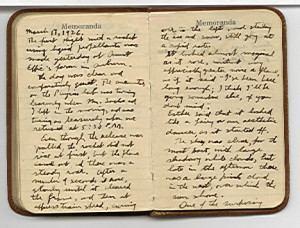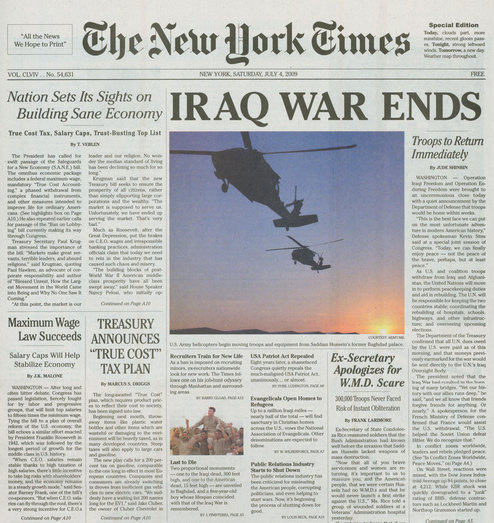How to Prepare for the Future
 When I have started various projects in the past I’ve usually thought of the people who would participate in them as being my peers – people my age. But eventually, we all grow old and can no longer carry on our visions and need next generations to take over. I’ve always been fascinated by organizations like SAGE in Portland, Oregon which understand this aspect of life very well.
When I have started various projects in the past I’ve usually thought of the people who would participate in them as being my peers – people my age. But eventually, we all grow old and can no longer carry on our visions and need next generations to take over. I’ve always been fascinated by organizations like SAGE in Portland, Oregon which understand this aspect of life very well.
SAGE: “We are a community of advocates who believe that each generation should improve the quality of life for the next.
Everyone is an asset, despite their age. People over fifty have energy, wisdom, and resources that are vital to the well-being of our communities. Through workshops, discussions, and leadership development, SAGE inspires and supports adults to give forward so younger and future generations thrive.”
SAGE helps facilitate all sorts of projects with a big part of what they’re about being the passing along of skills to future generations. My own projects like Farm My Yard really haven’t been built with that concept in mind. I just figured I’d do what I do – get things started and then people would pick up the idea and run with it and it would spread hither and yon over time and continue as long as needed. This is what happened with an organization I helped boost in 2003 – Freecycle.
In 2003 I came back from my 3rd Burning Man in the Nevada desert and I had really gotten interested in the gifting economy. Through the Utne Reader I learned of a small effort in Tucson, AZ that was all about using a Yahoo group to offer up one’s belongings and see who wanted them. They had grown to 1,000 members. I got busy starting a Portland version of the service and also started groups for many major cities in the U.S. and the world. One friend suggests that I did more to keep things out of the landfill than anyone alive. Freecycle’s success eventually led to a “free” section on Craig’s List and today’s very popular Buy Nothing Project which has relied on local Facebook groups for its growth and success. In this example, I have no doubt that something like this example of the gifting economy will easily outlive me. But what about things where I have been less successful in getting the project off the ground like Farm My Yard?
One way to make sure that whatever you’re doing spreads is to think about how to attract the very young to what you’re doing. That’s not always the easiest thing to consider. How can a 60-year old writer/thinker in Portland, Oregon transmit an idea to younger generations around the country and world? Well, kids love games and so perhaps through the use of gaming, there might be an opportunity to attract younger minds and hearts to the idea of urban gardening. That is what brought me into connection with X and I’m definitely interested in seeing if this might be a way to teach young people the magic of growing your own food, but perhaps also to consider learning how to spread that knowledge and interest into their lives for good.
This site full of cooking and gardening games for kids seems to fit that bill. I thought I’d try out Veggiezilla – and I can see how this might be a great way to get kids interested in growing vegetables.
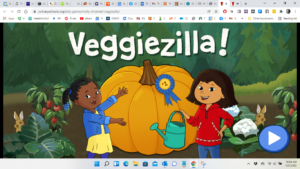
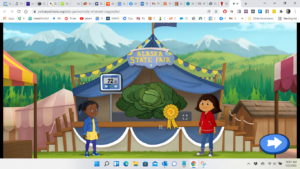
The game is simple yet entertaining. That said, I’m going to have to try to find some young kids to take it for a test drive and see what they think of it! I’m going to ask folks who follow the Farm My Yard FB page to see if their kids take to it. This New Looney Tunes Veggie Patch game also looks like fun.
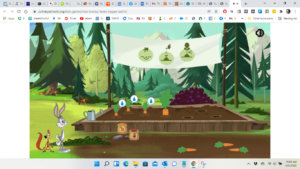
This one doesn’t seem to teach in a clear way as the first one above, but heck I know that different kids learn differently. In any case, these games seem like an interesting way to approach future generations that are given tablets at a young age. I’d be curious to hear your thinking below in the comments section. Do you think this is a good direction in addition to getting kids to get their hands dirty by actually digging in the dirt and planting things? My sense is that the more different kinds of information kids get the more likely they are to pick up the habit of growing food. I also think they might really need to understand these systems better in the future given the kinds of supply chain challenges we are seeing these days. Again, I’d love to hear what you think.
Thanks for reading. Here’s to a better year ahead.
Albert Kaufman
